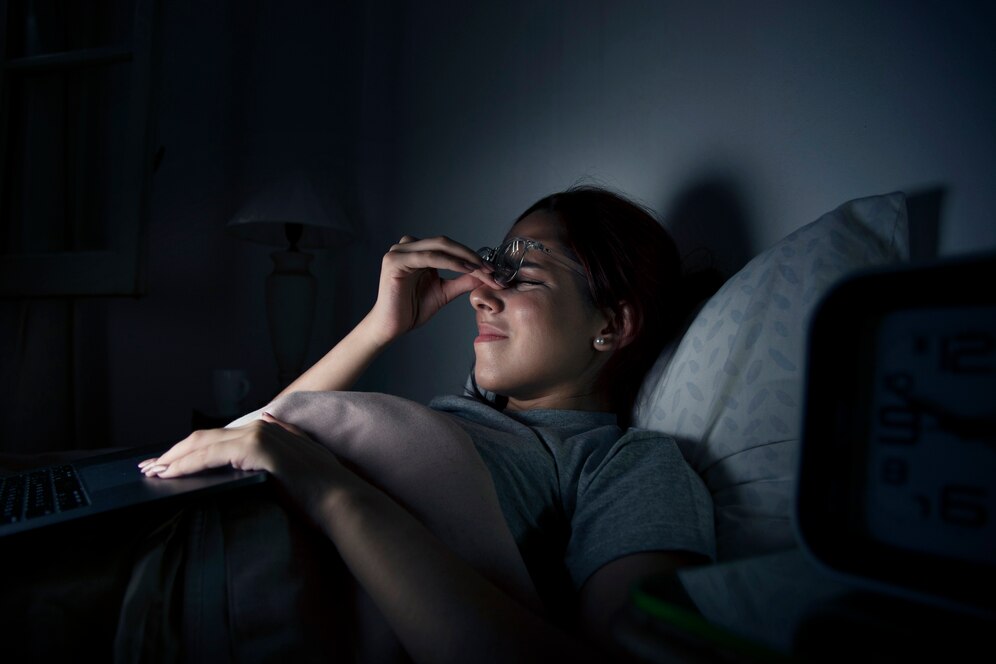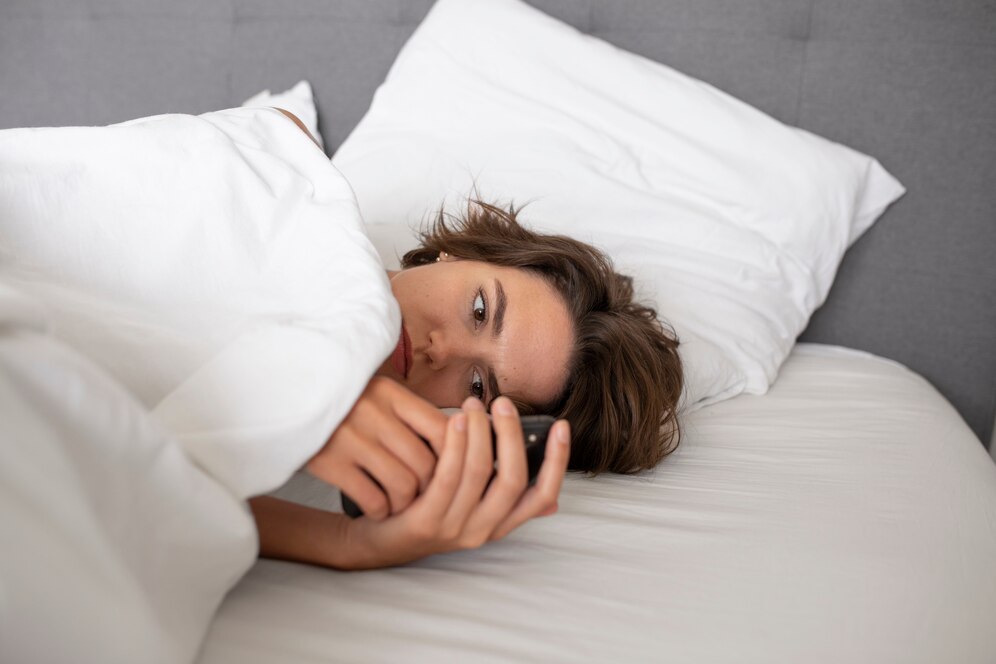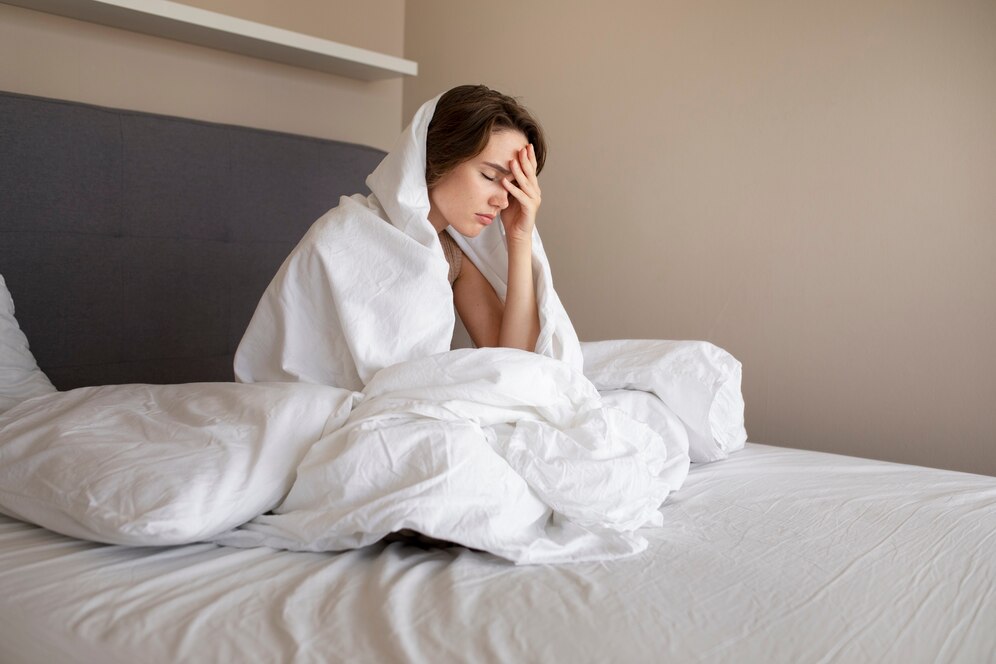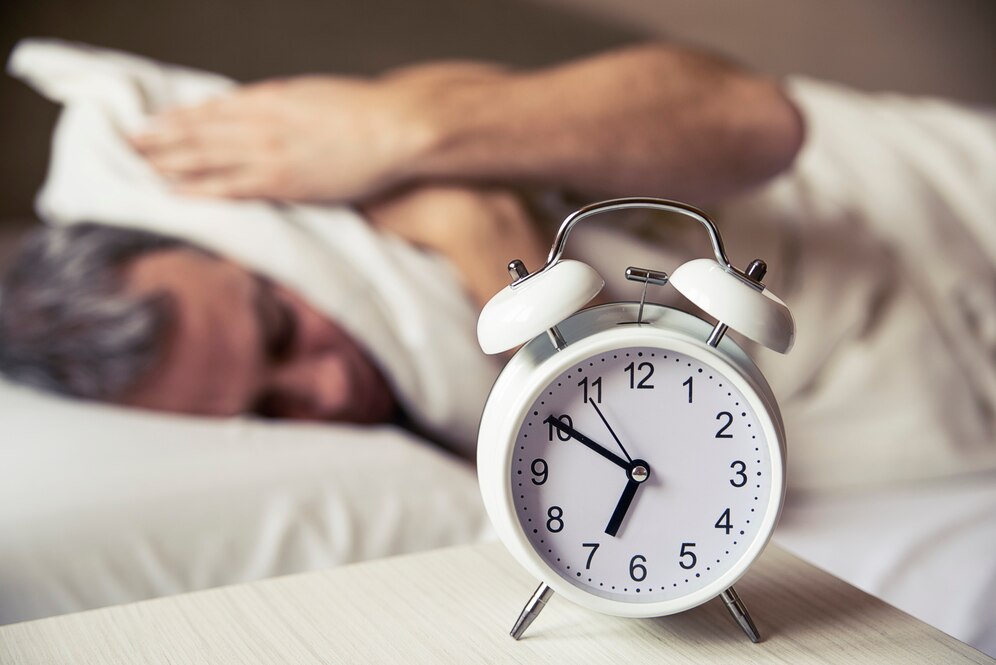Sleep is essential for our physical and mental health. When we don’t get enough sleep, we start to feel the effects. This article highlights some of the dangers of sleep deprivation.
But first, some facts
- 1 in 5 Americans sleep an average of only 5 hours and 30 minutes per night.
- The Centers for Disease Control and Prevention (CDC) recommends that adults get between 7 and 9 hours of sleep per night https://www.cdc.gov/sleep/index.html.
Lack of sleep can lead to serious health problems

Increased risk of chronic diseases: Sleep deprivation has been linked to an increased risk of heart disease, stroke, diabetes, and obesity. When you don’t get enough sleep, your body produces more of the stress hormone cortisol. Chronically high levels of cortisol can lead to inflammation throughout the body, which is a major risk factor for chronic diseases.
Impaired brain function: Sleep is essential for memory consolidation and learning. When you don’t get enough sleep, you have difficulty concentrating, focusing, and learning new things. You may also experience problems with decision-making and creativity.
Mental health problems: Sleep deprivation can worsen symptoms of anxiety and depression. It can also increase your risk of developing these conditions.
Weakened immune system: Sleep is important for the production of white blood cells, which help fight infection. When you don’t get enough sleep, your immune system is weakened and you’re more likely to get sick.

Increased risk of accidents: Sleep deprivation can impair your judgment and coordination, which can increase your risk of accidents behind the wheel or at work.
How to improve your sleep
Develop a regular sleep schedule: Go to bed and wake up at the same time each day, even on weekends. This will help to regulate your body’s natural sleep-wake cycle.
Create a relaxing bedtime routine: Wind down before bed with activities such as taking a warm bath, reading a book, or listening to calming music. Avoid watching TV or using electronic devices in the hour before bed, as the blue light emitted from these devices can interfere with sleep.

Make sure your bedroom is dark, quiet, and cool: A dark, quiet, and cool bedroom will help you fall asleep faster and sleep more soundly.
Get regular exercise: Exercise can help you fall asleep faster and sleep more soundly. However, avoid exercising too close to bedtime, as it can be stimulating.
Avoid caffeine and alcohol before bed: Caffeine and alcohol can interfere with sleep. Avoid caffeine in the afternoon and evening, and limit alcohol consumption in the hours before bedtime.
See a doctor if you have trouble sleeping: If you’re having trouble sleeping, see a doctor to rule out any underlying medical conditions.
By following these tips, you can improve your sleep quality and get the rest you need to feel your best.

Beyond Health: The Ripple Effects of Sleep Deprivation
Decreased Productivity: When you’re sleep-deprived, your focus and concentration suffer. You’re more likely to make mistakes, have slower reaction times, and struggle to complete tasks efficiently. This can have a negative impact on your work performance and academic achievement.
Strained Relationships: Chronic sleepiness can make you irritable and impatient. This can lead to arguments with loved ones, colleagues, and even strangers.
Reduced Safety: Sleep deprivation can impair your judgment and coordination, increasing your risk of accidents while driving, operating machinery, or even navigating everyday activities.

Financial Strain: Health problems caused by sleep deprivation can lead to increased healthcare costs. Additionally, lost productivity due to sleepiness can impact your income.
Here are some additional tips that you may find helpful:
Avoid large meals close to bedtime: A heavy meal can make it difficult to fall asleep.
Relaxation techniques: Relaxation techniques such as deep breathing or meditation can help to calm your mind and body before bed.
Cognitive behavioral therapy for insomnia (CBT-I): CBT-I is a type of therapy that can help you identify and change negative thoughts and behaviors that are keeping you from sleeping.
If you continue to have trouble sleeping after making lifestyle changes, see a doctor or sleep specialist. There may be an underlying medical condition that is affecting your sleep.


